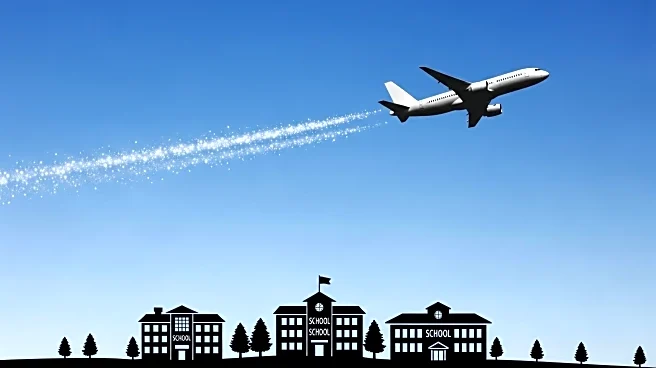What is the story about?
What's Happening?
Delta Air Lines has agreed to a $79 million settlement in response to a class-action lawsuit stemming from a 2020 incident where one of its aircraft dumped fuel over schoolyards and neighborhoods near Los Angeles. The incident occurred on January 14, 2020, when a Delta Boeing 777-200, en route from Los Angeles to Shanghai, experienced engine trouble shortly after takeoff. To ensure a safe landing back at Los Angeles International Airport, the pilots released approximately 15,000 gallons of fuel to reduce the aircraft's weight. This action led to minor skin and lung irritations among nearly 60 schoolchildren and teachers in the city of Cudahy, although none required hospitalization. The lawsuit was filed by teachers and homeowners affected by the fuel dump, citing exposure to jet fuel and subsequent physical and emotional distress. Delta agreed to the settlement without admitting liability, aiming to avoid the costs and distractions of a trial.
Why It's Important?
The settlement highlights the significant financial and reputational risks airlines face when operational decisions impact public safety and the environment. For Delta, the $79 million payout underscores the potential costs associated with emergency procedures that inadvertently affect communities. This case also raises awareness about the protocols airlines must follow during in-flight emergencies, particularly in densely populated areas. The incident has implications for aviation safety regulations and community relations, as airlines must balance operational safety with minimizing environmental and public health impacts. The settlement may prompt other airlines to review their emergency procedures and community engagement strategies to prevent similar incidents.
What's Next?
Following the settlement, Delta is likely to focus on enhancing its emergency response protocols and community relations efforts to mitigate future risks. The airline may also engage with regulatory bodies to discuss potential improvements in safety procedures during emergency landings. Affected communities and advocacy groups might push for stricter regulations on fuel dumping and increased transparency from airlines regarding emergency protocols. Additionally, the aviation industry could see increased scrutiny from environmental and public health organizations, leading to potential policy changes aimed at protecting communities near airports.
















